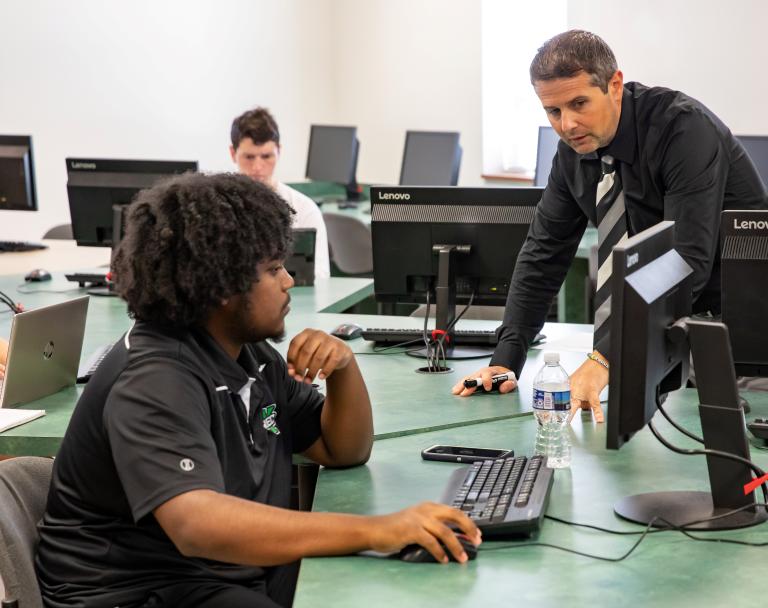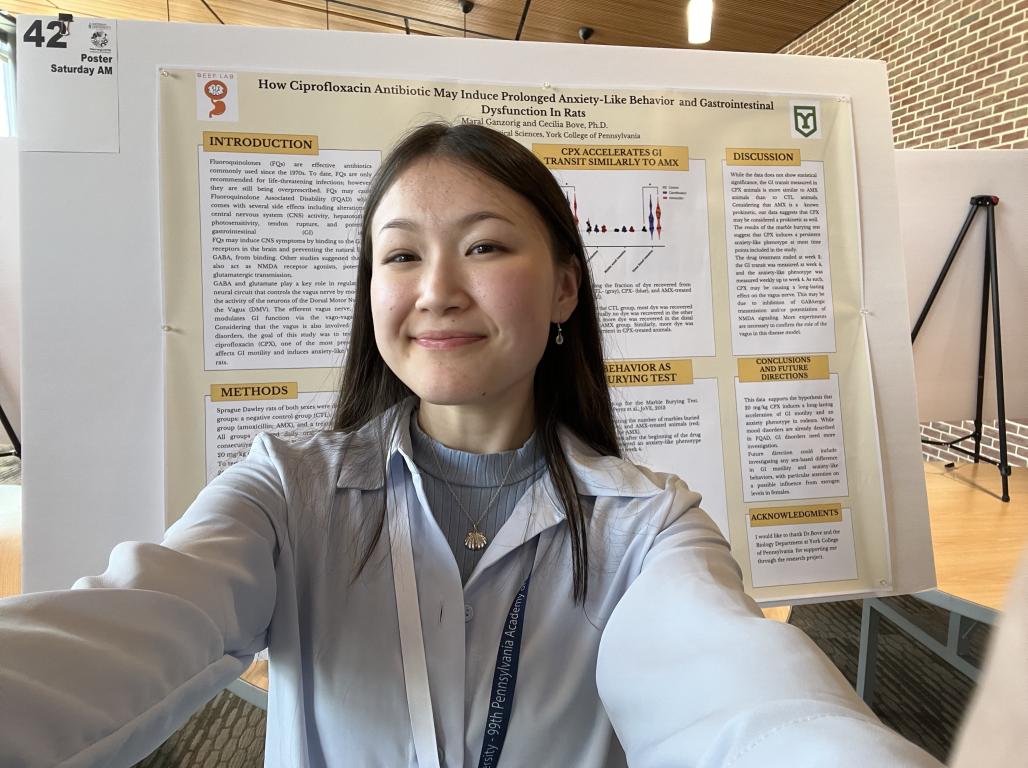York College is a teaching institution, committed to serving the evolving educational needs of students. Faculty focus on their work in the classroom, making connections with and engaging students through high-impact practices and innovation. In this series, faculty tell us what compels them to teach, and why they teach at York College.
Michael Mudrick, Ph.D., Associate Professor of Sport Management, has been teaching at York College for eight years.
It’s become a fairly familiar scene over the years. There’s an organic sense of vibrance and a general feeling of optimism in the air, and collective stress seems to be at a minimum.
No, I’m not talking about opening day for Major League Baseball. Rather, I’m referring to the scene of a college campus at the beginning of each fall semester, ripe with an energy that is often unmatched. It’s a unique feeling that plays a role in why so many involved in higher education enjoy what they do.
Maybe it’s the typical wind-down of the summer that recharges us most. Seeing students and hearing the messaging at Orientation or Academic Convocation serves as a reminder that we are part of something bigger than the information being shared in a classroom.
I say this often to current and prospective students – you’re entrusting us by coming to this institution, and consequentially, I’m going to do my best, like a coach, to provide you with tools to grow and, hopefully, put you in the right position to succeed.
What you learn at college is unquestionably pivotal to your professional development. It’s an honor to be a part of that. So many faculty will tell you that one of the most rewarding things about the profession involves hearing success stories from former students. While that comment isn’t anything groundbreaking, it doesn’t detract from the thrill of the experience.
At York College, I believe there’s often an extra degree of “rootability” with my students. I’m blessed to teach in a field — sports — that is omnipresent and a major passion to which students are naturally drawn. Nonetheless, there’s an element of relatability that is quite evident.
Social identity theory says that we align ourselves with entities that we perceive we share similarities with. I recall a time during my first few weeks at York College when I was in a new faculty orientation meeting. One of the questions posed was what stood out the most about the students so far. Another professor remarked on the grittiness he perceived and students’ collective blue-collar mentality. I agreed. And to this day, it still resonates with me.
As the child of a social worker and a School District of Philadelphia special education teacher, those descriptors tend to coincide with my upbringing. I also gravitate to athletes who may not be the most naturally gifted physically but embody similar tenacious characteristics. Some of my favorite movies showcase those folks, too. You get my drift.
It’s not just about your background, though. It’s also a mindset. Similar to the daunting challenges of becoming a high-level athlete, students in Sport Management know the competition that lies ahead in an immensely competitive sport industry. They’re going to have to work above and beyond to differentiate themselves. And for the most part, they embrace it. I appreciate that.
Sharing similarities like these with our students has a positive effect in and out of the classroom, making our jobs that much more enjoyable and rewarding. I still remember Feb. 5, 2018, vividly – the day before my beloved Eagles finally won a Super Bowl. (Not only that, they took down the Patriots with a backup quarterback!). I knew I had a plethora of fans in my classes given our location, so I wasn’t surprised that there was a revolving door of glistening faces in my office that day.
But those conversations weren’t dominated by discussions of some of the memorable plays on the field. Rather, most were about the emotional experience of the outcome – embracing family members and significant others; traditions of watching the team with particular relatives and finally being able to experience this together; the meaning of being a collective extension of something so special. It was rewarding on multiple levels. Yes, I was basking, too. But so much of what we had talked about that semester with regard to fan behavior was on display, and they knew it. And it’s what makes the sport field so unparalleled, for better or worse. I didn’t get much work done that day, but it was well worth it and something I’ll forever cherish about my job and appreciate about my students. Talk about theory-to-practice!
An alum recently mentioned to me that one of the reasons his business has been successful is because his colleagues are so likeable. When a group shares a common goal and possesses a degree of collegiality, not only will it have a positive effect on outcomes, it’s going to make their experiences more enjoyable. For me, along with having exceptional colleagues, the students play a significant role in that. During the inevitable low points of the academic year that we know are bound to happen, that’s something that I try to remind myself of. In the grand scheme of things, my students and colleagues are a tremendous group to work with – relatable, enthusiastic about achieving their goals, and simply people I enjoy spending such a significant amount of time with. I’ll count that as a career win.




